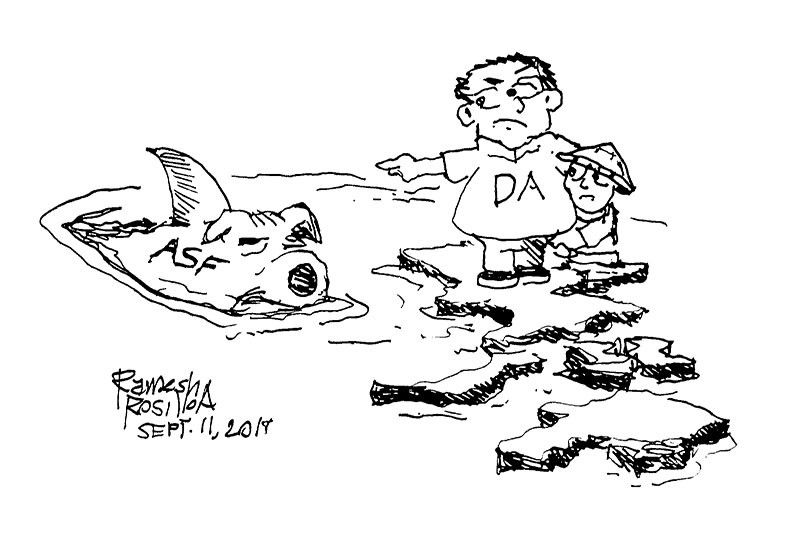EDITORIAL - ASF could be economically devastating if not contained

The Philippines is the latest country to be hit by the African Swine Flu (ASF) as the Department of Agriculture confirmed the arrival of the highly-contagious animal disease following months of taking measures against it.
In a report by The Philippine STAR, DA Secretary William Dar said at least seven areas in the provinces of Rizal and Bulacan were confirmed to have been affected by ASF as several blood samples sent to the United Kingdom tested positive for the disease.
As the DA is looking into possible cases in other areas of the country, it awaits the result of a separate test, which will determine the strain of the disease as it allays fears about ASF becoming a national epidemic. Latest data revealed there are more than 12 million hogs in the country.
In fact, the department announced that the ASF virus in Rizal has been contained. “I just want to clarify that there’s no more ASF. It has been contained because the areas have been disinfected,” DA spokesman Noel Reyes was quoted by GMA News TV as saying.
But despite assurance from the authorities, there is really no time for us to be complacent as far taking steps is concerned. DA and other concerned agencies should see to it that the ASF virus should only be contained only in areas where it is first reported.
Any breach in monitoring will have a serious effect on the country’s swine industry, which is pegged P260 billion. Economic Planning Secretary Ernesto Pernia warned earlier that ASF’s entry into the country will certainly bring a serious risk to inflation this year.
Now that the ASF virus is here, authorities need to heighten their watch to protect the country’s multi-billion hog industry. Although the virus is not a threat to humans, the risk it poses to the industry can be economically devastating.
- Latest

























